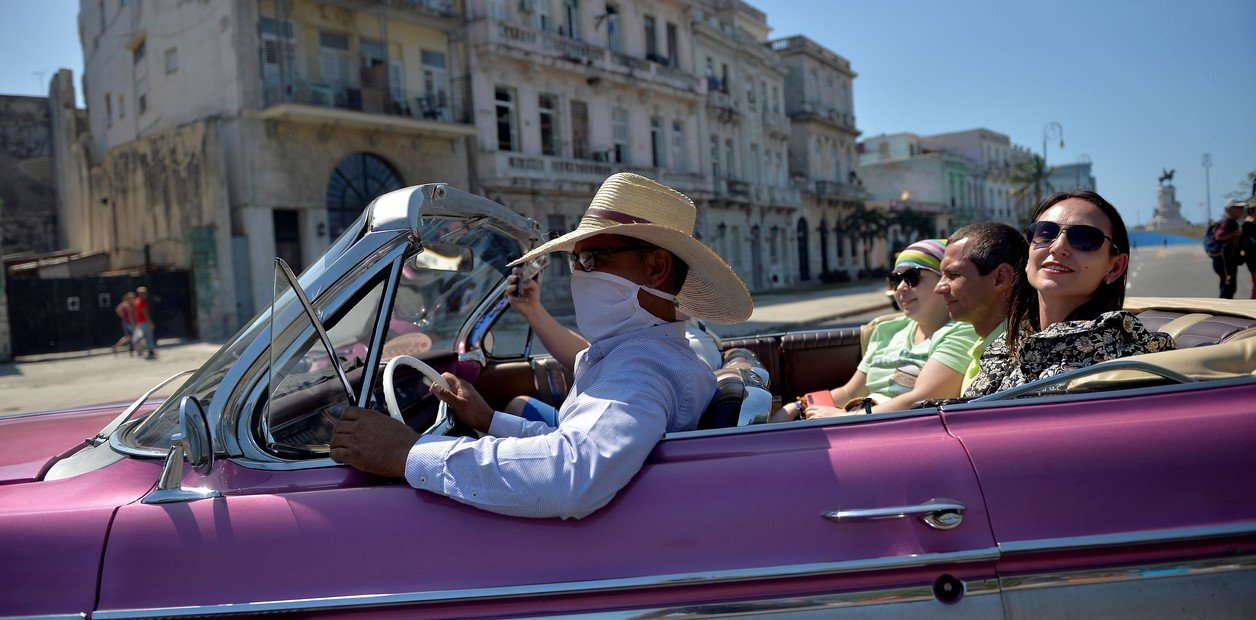Following the announcement of the new measures adopted by the Trump Administration, which bar Americans who travel to Cuba from staying at the 433 hotels and private houses under state control, and limit the quantities of tobacco and rum produced on the island that they can acquire, DIARIO DE CUBA asked several Cuban economists for their opinions.
One of the questions that many are asking is: what impact will these provisions have on the Cuban economy?
In this regard, Emilio Morales, CEO of the consulting firm The Havana Consulting Group, pointed out that they will take effect "when the pandemic is under control on the island and flights from the United States to Cuba resume."
The specialist predicts that the impact will be strong, because "more than 50% of the Cuban Americans who regularly traveled to Cuba stayed at least one weekend at hotels controlled by the military or the Ministry of Tourism, located mainly in Varadero, Cayo Santa María, Cayo Coco and Guardalavaca" many of whom "bought Cuban cigars and rum on their return trip to the United States."
For a more exact idea, Morales observed that "in 2019, 4,275,561 tourists visited the island, 1,051,433 of them from the US, which represented 24.6% of the total. Of these, 521,895 were Cuban-Americans."
According to Morales' estimates, the Cuban tourism industry, under normal circumstances, without Covid-19 and with open borders, would lose 20% of its hotel occupancy, which could mean a 35% decrease in revenue, because " the tourists who spend the most money in the Cuban market are those from the US."
In this regard the specialist believes that "those who would benefit a lot from these measures would be private sector workers, as they would be the only option for tourists from the US for a place to stay."
According to Omar Everleny Pérez Villanueva, the former director of the Center for the Study of the Cuban Economy: "it is curious that these measures were taken less than six weeks before the elections in the USA, and in a context of Covid-19 in which Cuba has closed its borders." In any case, he considers them "one more turn of the screw to quash the normal functioning of tourism," although "they will not have immediate effects on the country."
Pérez Villanueva points out that the measures are an instrument by Trump "to placate those Cuban migrants who advocate for pressure on Cuba," with the aim of garnering more votes in the next elections.
In the medium term, says the economist, the impact will depend on who wins the elections, because if Biden wins, "according to his electoral campaign, those restrictions will be lifted, and everything would return to the normalcy of the Obama era."
In the event Trump is re-elected, Pérez Villanueva believes that there could be two scenarios: one of them is "that he is consistent with his position against the Cuban State", but the other "is that he remembers that he has never been and will never be a politician, but rather a businessman, and that he no longer needs the votes of Cuban Americans, so he could try to do business with Cuba, as he tried to do before the 2016 elections."
Elías Amor, economist and president of the political group Unión Liberal Cubana, pointed out that these measures could "affect 26% of the country's total tourism income, which in 2019 came to over 2.645 billion CUC, of which 373.1 million CUC (14% of the total) were channeled to the private sector."
"The direct economic impact is an important figure, around 590 million CUC, which, in the short term, would modify the total amount of tourist revenue," he added.
On the other hand, "Cuban rum and tobacco sales in the US represent lesser quantities, and the consumers of these products will be able to continue acquiring them, using distributors' burgeoning online channel, or placing orders from other countries, such as Spain," said the specialist.
Another issue of interest to Elías Amor will be "how to channel resources to the private sector", because, according to his calculations, private accommodations could see their revenue from this service rise to 22% of the total, from the 14% it accounted for last year.
"While the average occupancy rate for all tourist establishments was 48.2% in 2019, it is not difficult to see that there is room to grow by offering accommodations to US tourists who cannot access the establishments included in the prohibition. It would no longer be a fight for market share, but rather real growth in private sector figures due to higher occupancy rates, which would have very positive effects on businesses' profitability levels," he added.
In the medium term, in the economist's view, the measures could cause the government to liberalize "the permits for private establishments, paving the way for new owners, who would furnish the hotel industry with an alternative service, as it, in any case, would continue to serve 74% of the tourists who travel to Cuba, who represent 1.957 billion CUC in revenue."
In the opinion of economist Pavel Vidal, currently a professor at the Universidad Javeriana de Cali, in Colombia, the measures are "very unfortunate", since the planet is "in the midst of a pandemic and a global recession, with the United Nations asking for cooperation and solidarity between countries."
In addition, the specialist pointed out that the "International Monetary Fund is calling for debts to be forgiven and financial relief be established for lower-income economies so that governments have the resources to fund health systems and generate relief for families and companies."
